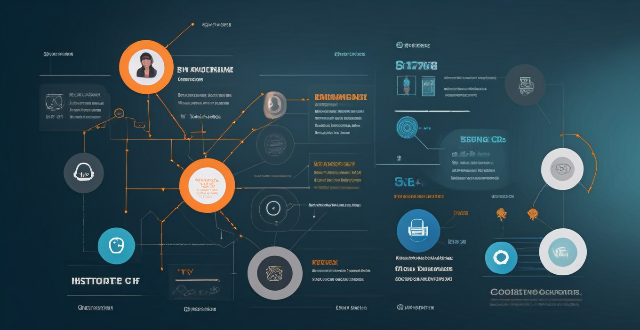Avoiding Common Pitfalls in Influencer Marketing: Effective strategies include choosing the right influencers, setting clear objectives, providing a creative brief, monitoring campaign performance, maintaining open communication, complying with legal requirements, and preparing for potential issues. By following these steps, brands can enhance their influencer marketing efforts and minimize common mistakes.

How to Avoid Common Mistakes in Influencer Marketing
Influencer marketing has become an essential part of many brands' marketing strategies. However, it is not without its pitfalls. Here are some tips on how to avoid common mistakes in influencer marketing:
1. Choose the Right Influencers
- Research Thoroughly: Before partnering with an influencer, research their audience, content quality, and engagement rate. Ensure that their values align with your brand's image.
- Authenticity Matters: Prefer influencers who genuinely use or support your product/service over those who just promote anything for money.
- Diversify Your Portfolio: Don't rely on a single influencer; instead, work with multiple influencers across different platforms and niches to reach a wider audience.
2. Define Clear Objectives
- Set Measurable Goals: Determine what you want to achieve from the campaign, whether it's increasing brand awareness, generating leads, or driving sales.
- Align Expectations: Make sure both you and the influencer understand these goals to create content that supports them effectively.
3. Establish a Creative Brief
- Provide Guidelines: Give influencers clear guidelines about your brand voice, visual identity, and key messages to maintain consistency.
- Allow Creativity: While providing guidelines, allow room for the influencer's creativity to shine through, as this authenticity often resonates better with their audience.
4. Monitor Engagement and Performance
- Track Metrics: Use tracking links, promo codes, and UTM parameters to monitor the effectiveness of the campaign.
- Analyze Data: Regularly analyze data to see what's working and what's not, making adjustments as necessary.
5. Maintain Open Communication
- Regular Check-ins: Keep in touch with influencers throughout the campaign to ensure they have all the resources they need and to address any concerns promptly.
- Feedback Loop: Encourage influencers to provide feedback on the campaign process and outcomes, which can help refine future campaigns.
6. Comply with Legal Requirements
- Disclosure Rules: Ensure that all promotional content follows the Federal Trade Commission's (FTC) guidelines on disclosure, especially regarding sponsored posts.
- Contractual Agreements: Have clear contractual agreements outlining expectations, deliverables, compensation, and any other relevant terms to avoid misunderstandings later.
7. Prepare for Potential Issues
- Risk Management: Anticipate potential issues such as negative comments or controversies involving the influencer and have a plan in place to handle them gracefully.
- Reputation Monitoring: Stay aware of your brand's reputation during the campaign and be ready to respond if anything damaging arises.
By following these steps, you can significantly reduce the chances of encountering common mistakes in influencer marketing and set your campaign up for success.